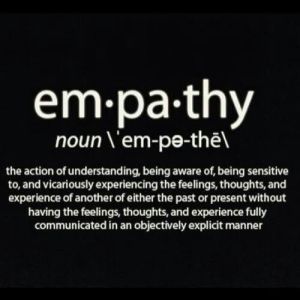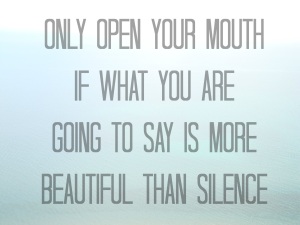The Cruelest Comment I’ve Ever Received About Not Breast Feeding Was Made to Me By a Nurse
Words are our most powerful weapon. In 2006, an Intensive Care Unit nurse strung together seven innocuous words that still pierce my heart.
I lay there in the new ICU room and felt a sense of loneliness and anxiety wash over me. The strange and incessant beeping of everyone’s machines on the floor resembled a video arcade. The smell of alcohol and hospital soap engulfed the room. My nurse came in to change my post-surgical dressings. I waited for her to do the wet-to-dry style dressing change that had become familiar in the previous ICU. Instead, she pulled out a tube of Neosporin and was about to drown my surgical wounds in that goop. I panicked and meekly whispered, “I need wet-to-dry dressings. That is how they did it at the last hospital.”
The nurse looked at me incredulously and retorted, “I have been a nurse for twenty years, so please just let me do my job.”
I gulped back sobs, my mind racing and worrying that this nurse was undoubtedly about to screw me up, just like the last hospital had. As the nurse talked to me, she learned that I had a four-week-old infant at home. She looked at me and wryly said, “Well… I guess you’re not breast feeding,” and then laughed at her own joke. I gave a weak smile, but pushed back more tears and tried to reconcile how someone could be so callous.
I spent hours wondering about my neighbors on the ICU floor. How did they wind up here? Were they as scared as I? Did they have families at home waiting for them? These thoughts were interrupted by a loud stampede of footsteps racing down the hall and the blaring of doctors shouting, “Code Blue!” I strained my ears to hear the commotion and then wept when all sounds stopped. A few hours later, I saw a gurney being wheeled out in the hall with a large body draped from head to toe in white sheets. I had never been that close to a dead person before. I held myself close and shuddered. The ICU is like a deli counter. Everyone’s got a number. We’re all just waiting in line.
In an effort to prevent future patient harm and illustrate the important role that empathy plays in patient care, I speak to medical professionals on this topic. It’s easy to get bogged down in the beaurocratic nightmare that plagues our current healthcare system. Now more than ever, care providers need to hear a patient’s perspective on what it’s like to have your fate hinge on whoever walks through your hospital room door. Here’s a clip of an interactive presentation I recently gave at a Patient Safety Summit in Connecticut. Despite the serious topic, I was delighted to hear a lot of laughter.
- Disclaimer: This short clip may seem slanted toward negative experiences I encountered during my 218-Day hospital stay. I can honestly say that compassionate and skilled medical providers far outnumber the few “bad apples.” It is to these incredible, selfless women and men to whom I owe my life.



Oh my G-d, you have to take this show on the road. Med students and student nurses need to hear what you have to say before they can go near a patient. Having been in the hospital a few times, in great pain, hooked up to a torture machine to keep my knees bending, I can understand how you felt. But at least I could talk.Or possibly the day I was suppose to leave the hospital and I had an argument with the intern about the blood he insisted that I needed when my primary doctor said I didn’t. Guess who won!! It pays to be a teacher because we have that look and that voice that would scare the devil!
I love you lisa Helfand and value your friendship more than you will ever know!
LikeLike
Lisa, thank you so much for putting this out there. Your story about the ICU nurse’s flippant “joke” about you not breastfeeding, at a time when any mother in your shoes would be feeling so vulnerable, insecure, and lonely, must have absolutely pierced your heart. I too have had health care providers say some really insensitive, deeply hurtful things that left me in tears (also about breastfeeding, coincidentally!) I know they had no intent to hurt me, they just spoke without thinking or putting themselves in my shoes. I’ve also had some amazing, compassionate, truly devoted healthcare providers, without whom I would be in very bad shape now. We all treasure those doctors and nurses and techs who, in our darkest and scariest moments, show such empathy and kindness. But unfortunately there are some who don’t understand the enormous power they have to tear us down with just their poorly thought through words. I agree with Renee Miller that each and every nursing student, med student, and healthcare tech should be required to see that video! Great job, Lisa!!
LikeLike
What a wonderful presentation, Lisa!
LikeLike
That comment is indeed heartless 😦 I do want to make a comment about some irony in your blog article, though. Wet-to-dry dressings (even though “that’s how they did them at the other hospital”) are most of the time incorrect no matter who does them and where. Next time, please ask for the wound nurse specialist in your hospital (WOC Nurse, most likely) to assess your wound and order the treatment.
LikeLike
Man, I’m so sorry. I had the totally opposite experience.
I had some severe bleeding issues and ended up re-hospitalized at one month postpartum.
The doctor came in after I had been there about a week and was like, “Are you still breastfeeding?” He knew damn well I wasn’t, but was polite about it.
He happened to be an old-school style attending MD and had several med students with him. When I confirmed that I was not breastfeeding, he turned to his med students and said: “NEVER judge a mother for this. By the time the kid’s a year old, there’s no difference anyway. ”
Obviously, there are some benefits to breastfeeding. But there are no benefits to criticizing a sick mom for formula feeding.
LikeLike
Nice sharing thanks…
LikeLike